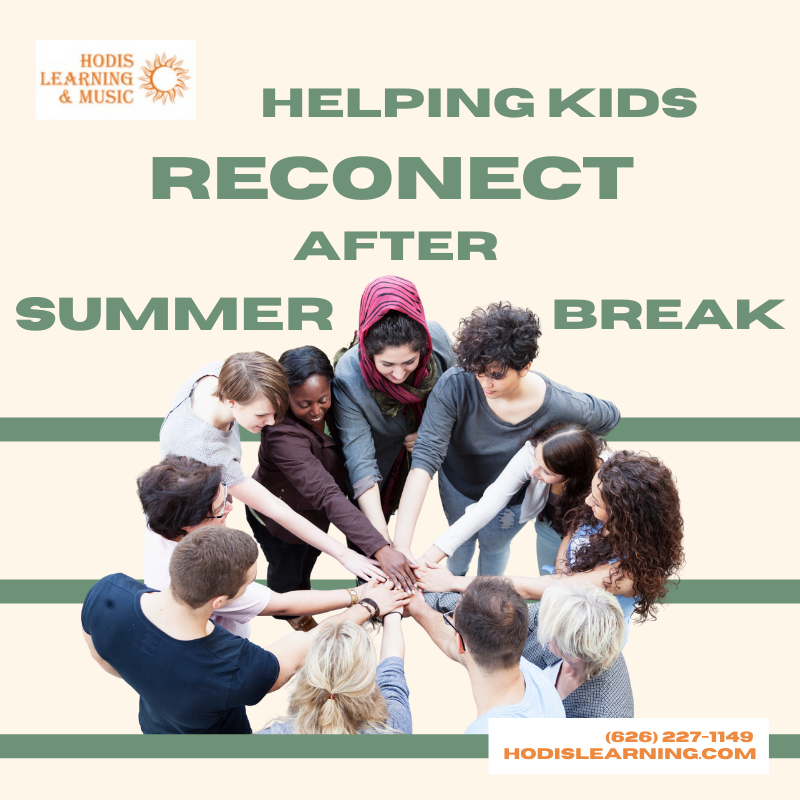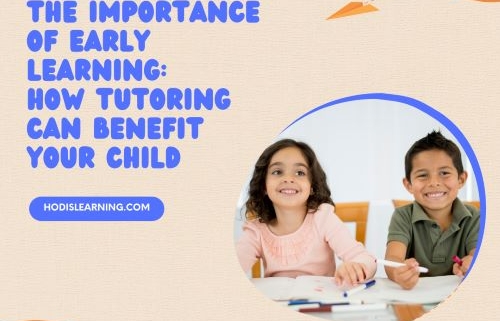The long, carefree days of summer are a wonderful break for children, but returning to the school routine in the fall can be a big adjustment, especially when it comes to reconnecting with peers. For younger students in particular, making or rebuilding friendships after the summer break can feel daunting.
In this post, we explore how parents, teachers, and tutors can work together to encourage positive peer relationships, especially for children who may be shy or struggle with social confidence.
The Importance of Positive Peer Relationships
Children thrive when they feel connected. Friendships at school not only make the day more enjoyable but are important opportunities to build strong social bonds. Positive social experiences can help younger students feel more motivated to learn and more willing to participate in group activities. Unfortunately, after a long break, some kids may feel out of practice or unsure of where they fit in.
Recognizing the Challenges for Some Students
Not all kids jump right back into social settings with ease. Some children may feel nervous about initiating conversations or joining group play. Others might worry that their friends have changed or that they’ve missed out during the summer. These feelings are natural but can be overwhelming without the right support.
Parents, caregivers, and teachers can help by recognizing signs of social hesitation, such as reluctance to go to school, isolation at recess, or anxiety about group projects. Offer gentle encouragement and structured opportunities to rebuild those connections.
Simple Activities to Encourage Social Connection
Here are a few low-pressure, high-impact activities caregivers and teachers can promote to help kids ease back into peer relationships:
- “About Me” Collages or Presentations: Let students share something fun about their summer. This encourages conversation and highlights shared interests and experiences.
- Cooperative Learning Games: Organize small group activities where success depends on teamwork. These could be group puzzles, STEM challenges, or classroom scavenger hunts.
- At-Home Playdates or Group Meetups: Parents can organize low-key social events outside school hours to help strengthen budding friendships.
How Tutors Support Social Growth
At Hodis Learning & Music, we believe that learning is more than just academics. It’s about supporting the whole child. Our tutors are not only skilled educators but also empathetic mentors who understand the importance of peer connection, especially after transitions like summer break.
Here’s how we help:
- Building Confidence Through One-on-One Support: When a child feels capable in the classroom, they’re more likely to participate in group settings. Our tutors work to build foundational skills and boost self-esteem.
- Encouraging Communication Skills: Whether it’s through reading comprehension discussions, math problem-solving collaboration, or creative writing prompts, we help students practice expressing themselves.
- Providing a Safe, Encouraging Environment: Our sessions are judgment-free zones where students feel valued. That emotional safety often spills over into their school lives, making social risks feel less intimidating.
Final Thoughts
Whether your child is eager or anxious about the new school year, a little intentional effort can go a long way in fostering positive peer relationships.
And remember, you’re not in it alone. At HLM, we’re here to support your child academically and emotionally, every step of the way. Call or email us today to learn more about tutoring.



